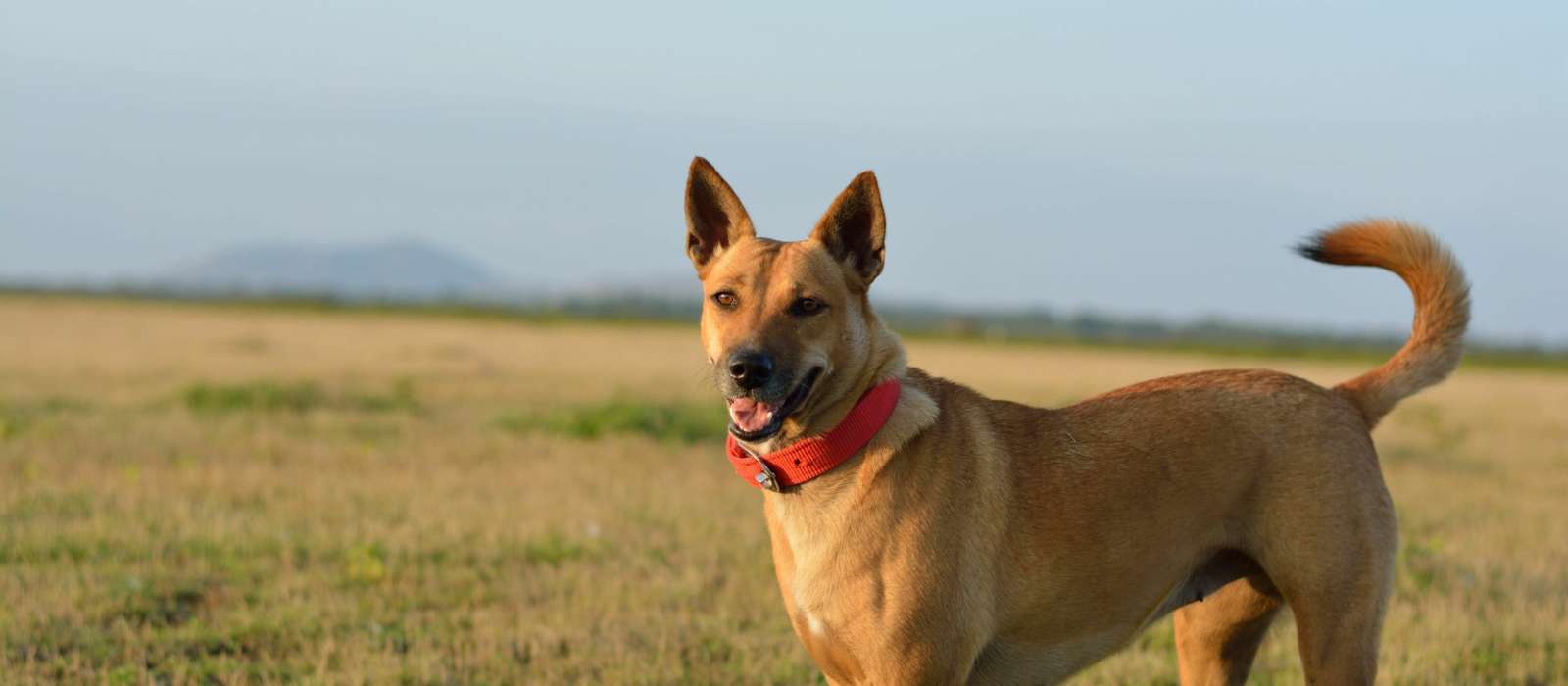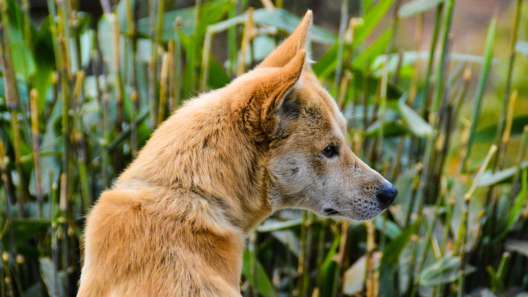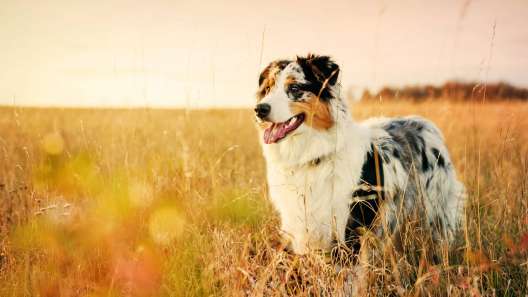-
Activity Level:
moderate
-
Shedding Level:
low
-
Grooming Level:
low
-
Trainability:
high
-
Good for Novice Owners:
moderate
-
Adaptability:
moderate
-
Kid/Pet Friendly:
often
-
Prey Drive:
high
-
Watchdog:
aware
- Average Size: Medium
- Average Lifespan: 12-15 years
- Registered?: aca, akc, other
Carolina Dog Dog Breed Information
Overview
Temperament
Adaptability
Health
Owner Experience
Grooming
Activity Level
Size
Life Span
Did You Know?
Carolina Dogs are often described as looking similar to Australian Dingoes or a jackal. This dog breed originated in the southern United States. Their canine ancestors came to what is now Georgia and South Carolina with the Paleo-Indians who traveled to North America over the Bering land bridge. Their ancestry can be traced back to domesticated Asian wolves from thousands of years ago.
Although they have been domesticated, these sighthounds can still be found living in the wild in this area. They tend to be more concentrated near the Georgia-South Carolina border, and they have been spotted as far to the west as Arizona and as far north as Pennsylvania and Ohio. The AKC has included the Carolina Dog in their Foundation Stock Service since 2017 and has assigned them to the Hound Group.
Although they can be found living in the wild, Carolina Dogs are loving and affectionate with their families. As long as they are well-socialized and trained, they get along well with children and other dogs in the family.
They do tend to have a strong pack mentality, which makes them hesitant of strangers. As long as they are properly socialized, they will warm up a bit once introduced, but may also stay reserved around anyone outside of who they consider family. They tend to have a high prey drive, so will need extra socialization and training with smaller pets in the family and may have an urge to chase animals that aren’t part of their pack.
Carolina Dogs will bark to alert you, but they don’t tend to bark a lot unless they have been trained into it or are poorly socialized. It’s not a bad idea to train your dog to stop barking early on to keep it from becoming a nuisance.
Carolina Dogs are moderately adaptable dogs. They tend to be better suited to homes with fenced yards where they can run. As long as plenty of time is dedicated to daily exercise and mental stimulation, they can adapt to apartment living despite their preference for space.
They do well in most climates. As with any dog, they are sensitive to heat. If you live in an area with cold and wet winters, they may also need to bundle up in some winter dog products to stay warm while out on walks when the temperatures drop.
Although these dogs can be hesitant and aloof with strangers and are shy out in the wild, they bond fiercely with their pack and love being around their families. Because of this, they do not like to spend long periods of time alone.
Carolina Dogs are a relatively healthy breed; they can be prone to hip dysplasia and elbow dysplasia. Good breeding practices make a big difference in the health of puppies. Reputable breeders will screen their dogs to avoid passing preventable issues to puppies, so make sure you are asking about the health and genetic history of the parents.
Some of these dogs can have a sensitivity to Ivermectin, so it’s important to have a conversation with your vet before they are given antiparasitic medications or start any tick or flea prevention. They may be able to help you test safely for this sensitivity and help you come up with an alternative preventive medication plan if it is present.
Although Carolina Dogs can have a stubborn streak, they tend to be eager to please and easy to train. As long as they consider you family, they strive to gain praise from you. Individual dogs may vary in responding to treat training, but they generally respond well to praise.
They can be a challenge for first-time owners because they need to bond and build trust first and require consistent, confident leadership during training. Puppy training classes can still be a good idea even if you don’t necessarily need them for training.
A Carolina Dog has a short to medium coat that will shed a little year-round. They do develop a thicker undercoat during the winter months and will have heavier seasonal shedding. Weekly brushing is usually enough to keep this dog’s coat looking great. Daily brushing or brushing a few times a week during seasonal shedding is helpful. These dogs tend to keep themselves relatively clean, so bathing is on an occasional as-needed basis.
In addition to coat care, you will also need to take care of your Carolina Dog’s nails, ears, and teeth. Nail trims once or twice monthly are usually enough to keep nails from growing too long and causing issues. Weekly ear checks with careful cleanings as needed can help prevent ear infections. Daily dental care plus cleanings at the vet when needed can help prevent painful dental diseases later in life.
Although Carolina Dogs may seem like high-energy dogs, they tend to sit in a more moderate range. Daily walks plus some playtime and time to run are usually enough for these dogs. They love spending time with you being active though, so they will probably be up for more activity if you are.
Carolina Dogs are athletic and are known to excel at competition and dog sports. Dock diving, agility, rally, obedience, and more tend to fit well with these dogs. Once puppies finish growing and are cleared for higher-impact activities, you can try running and other more intense activities. Carolina Dogs tend to be one of the sturdy dog breeds for outdoor adventures, so swimming, hiking, and more are good options to try.
A fully-grown Carolina Dog usually stands 18-20 inches tall and weighs 30–55 pounds.
Carolina Dogs generally live for 12-15 years.
Carolina Dogs have also been referred to as North American Native Dogs, American Dingoes, “yaller dogs”, Yellow Dogs, Dixie Dingoes, and Indian Dogs.








